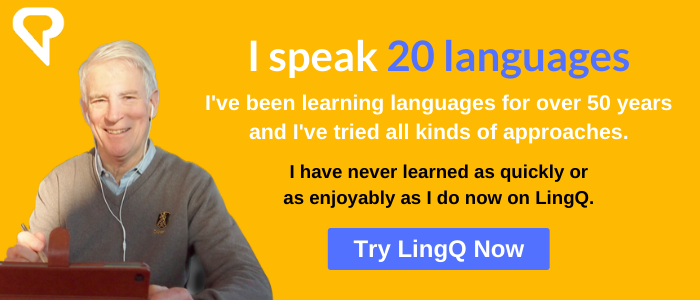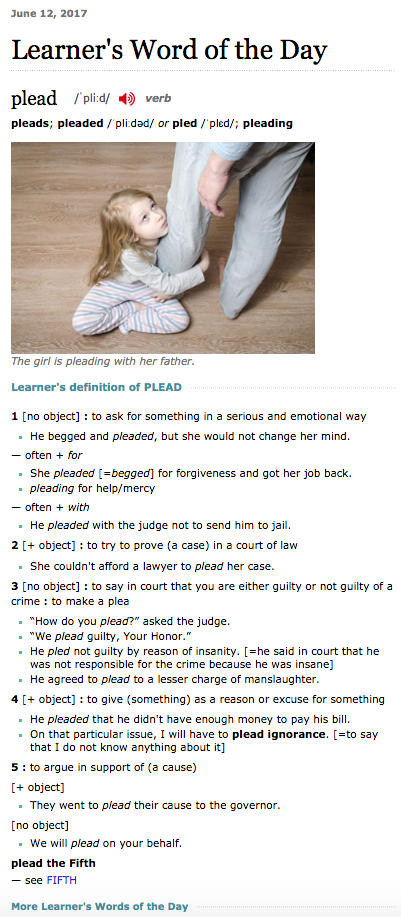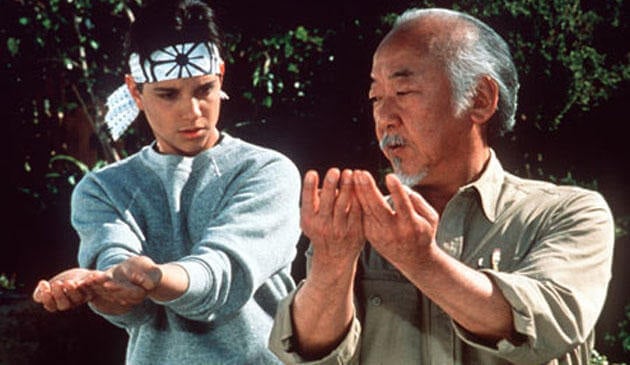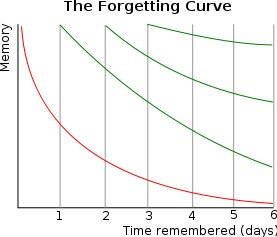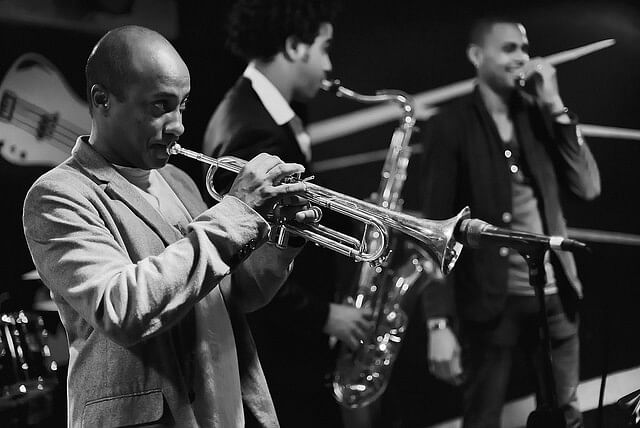How to learn vocabulary
How to learn vocabulary
How to Learn Vocabulary Fast
The most important task in language learning, in my opinion, is the acquisition of vocabulary.
If we have enough words, we can make sense of what we’re reading or listening to and we can somehow express ourselves. Vocabulary is much more important than grammar. The grammar you acquire gradually as you become familiar with the language, with the words, but first of all you need words.
How do we learn vocabulary?
There are two approaches. One is the deliberate study of vocabulary by reading vocabulary lists, flash-carding, keeping handwritten lists, these kinds of things. The other is to learn through a lot of exposure. Now, the strategy that you adopt will depend on your personal preference and also, in my view, how much time you have.
If you have a lot of time, six-seven hours a day as I did when I was studying Mandarin Chinese 45 years ago, then you can take an hour a day for the deliberate study of vocabulary. However, if you have one hour a day and two-thirds or three-quarters of that time, which I call dead time, is in your car, doing tasks around the house, walking the dog, then I suggest you don’t try to deliberately learn vocabulary.
Interleaved learning
There is significant research showing that what they call block learning – where you take some material and try to force yourself to learn it, reviewing it many, many times – is relatively inefficient. Interleaved learning, where you come across some information, then you forget it, you go look at some other information and you come back to that first information, so you’re sort of interleaving layers of different things, forgetting and relearning, actually enables you to learn things better.
Very quickly, the Law of Diminishing Returns sets in when we’re deliberately trying to learn something. It’s no longer fresh for our brain and the brain basically pushes back, whereas if you forget and come back to it you learn better. But if you have six-seven hours a day, there’s nothing wrong with spending some time reviewing flashcards.
When to Speak
Of course, speaking is also helpful. What you hear the native speakers say while speaking is what I call high resonance, just as interesting content is high resonance. You notice things and learn vocabulary better if you’re engaged in a conversation. You also notice when you weren’t able to find the words yourself and then you hear someone else use them.
However, in my own case, I prefer to delay that speaking situation unless there’s a need: if I’m living in the country where the language is spoken. Otherwise, I prefer to delay it until I have something meaningful to say and can understand what the other person is saying. Otherwise, we end up with a very limited range of language that we’re exposed to like, “How are you?” “What’s your name?” “What’s the weather like?” etc.
Therefore, I prefer to give myself that significant exposure through listening and reading, quite confident that the high-frequency words will appear very often, the medium-frequency words will appear less often, but I will eventually get them, and the very low-frequency words, some will stick and some won’t. If they’re that low frequency, maybe I don’t really need them.
Ultimately, the choice is with the learner and my preference is to study in an enjoyable way. If I were in a course somewhere working five-six hours a day having to write an exam, I might take a different approach.
If you’re interested in this subject, please subscribe to my blog and also check out my YouTube channel where I talk about my experience in learning 16 languages.
How to learn vocabulary effectively: the power of context
Alina Kuimova
Author and founder
Average adult knows 60 000 words but only 10% of them is a result of deliberate teaching. The rest 90% of words we know and understand comes from oral or written context. Master this technique (incoded in the scientific world as Context Vocabulary Acquisition) and you will find the answer on how to learn vocabulary effectively. And, yet, this strategy is fairly unknown to language learners and, as a result, greatly underused. Let’s fix it.
What’s wrong with the typical vocabulary learning approach?
At the very beginning of the language learning journey your main task is to quickly gain new vocabulary in mass. Various sources indicate different numbers: you will read that you have to know 1000 “core” words, 2000 most frequent words, 2568 general service words and so on. And guess how all these words are represented?
That’s right. As a list.
Honestly, what can you do with a list? The only way to conquer this mountain is to add them all into a spaced repetion system and regularly assault your brain with reviewing these words.
Let’s be frank here. That’s what every single language class tries to achieve. They give you a bunch of words, expect you to cram them somehow, then check your knowledge and see if you remember anything. I remember doing something like that in my high school English class. I also remember that these words meant for me so little that they magically evaporated from the surface of my brain immediately after the test.
And, yet, I kept making this mistake even knowing that it certainly wasn’t the way how to learn vocabulary effectively. And then everything changed. In that moment I took my first book that was completely in English and decided to read it from cover to cover.
Because in this moment another player got in the game: context.
What is context?
The meaning of “context” is so vague that you can only guess it from the context.
Nevertheless, for many of us context is a text surrounding an unknown word. And this is a fairly good interpretation except for the fact that it’s missing 3 other game-changers.
Context: introductory anatomy
Word “surroundings” are only one (external) part of a gross anatomy of context. The main part is actually hidden deep in the reader’s brain.
We make sense of everything we are reading and listening. And words are just links that allow your brain to connect to various concept: “word”, “brain”, “anatomy”. Think of it. These words do not exist on their own; they are parts of your perception system. So when you encounter a word that you consider as unknown, the problem can be in that system, rather than in a word itself.
Let’s do some troubleshooting. These are the majot trouble-makers:
1. The lack of prior knowledge
Prior knowledge is sometimes called commonsense knowledge or world knowledge. It consists of all those simple facts that water is wet, that grass is green, that birds fly and that cars usually get stuck in traffic. As an adult, you know all these common concepts so it rarely poses a problem for you. However, when children learn a language, their main problem is that they don’t know a concept and therefore cannot tag it with a word.
2. The lack of background knowledge
Background knowledge is something that the author of a text expects the readers to know prior to reading his work. Unlike prior knowledge, background one is often technical or domain-specific. For example, if you’re reading the care and maintenance manual for a semi-closed circuit rebreather with no domain-specific knowledge, I’m sorry, but you’re screwed. To understand the meaning of unknown words, you will have to actually learn new concepts like “rebreather”, “solenoid” and “bailout valve”.
3. The lack of language knowledge
As you can guess, this is the main problem of language learners. In this case, the concept is usually known – but under the different word from a different language. In first days of learning vocabulary, you actually rediscover old concepts like “the sun”, “a car”, “to run” and connect them to new words “le soleil”, “une voiture” and “courir”.
There is no way how to learn vocabulary effectively, even with an explicit context, if one of these three parts is omitted. Why?
Simply, because no word surroundings will help you to understand the following if you never learned Chinese: 我不明白. Or this, if you are not in the world of nuclear physics, even if it’s written in English: “Plotted on a chart as a function of atomic and neutron numbers, the binding energy of the nuclides forms what is known as the valley of stability”. Or even this, if you’re an anglophone child but have no idea what “red” means: “Tommy, look at this red car!”
But the game is actually even more complex.
Few words on perception
The game is more complex because what you think the text is doesn’t necessary equals to what the text really is. What you have read is not always the same to what was actually written. It’s especially true for physics and mathematics textbooks. Come on, didn’t it happen to you that after reading a whole paragraph of a book you had this screaming “WHAT?!” inside?
Like after this one?
It’s called a math problem for a reason. You have to read it at least twice to understand what the author actually wants from you.
Or consider the next one:
If by any chance you misread “cat” as “car” your expectation will be quite different from those if you read the sentence correctly.
So when thinking on how to learn vocabulary effectively you have to go further than just looking at the word surroundings. Rather, you need to aware of this preception trap and see how all parts of the context work together: internalised word surroundings blended with prior, background and language knowledge.
Sounds formidable, I know. But it’s easier to digest with a real example.
How does the context work?
Let’s imagine that you have this sentence in English with one of the words unknown:
“The waiter, previously friendly and good-humored, was tonight solemn and taciturn.”
Your written context looks obviously like this:
“The waiter, previously friendly and good-humored, was tonight solemn and _____”
Now, let’s see how our prior knowledge helps us unveil a meaning of “taciturn”. I’m saying a meaning because the whole point of the game is to get any temporary meaning that will allow you to read on.
First of all, words “friendly” and “good-humored” describe qualities of a person (the waiter, in this case). We can say that he is an outgoing guy who usually loves a good laugh. However, words “previously” and “tonight” indicate the change in the behavior of the waiter. Consequently, “friendly and good-humored” is opposed to “solemn and ___”. As the word “solemn” usually describes someone who behaves in a very formal way, we can conclude that the waiter lost his outgoingness and cheerfulness. As we had a chance to observe this kind of people in real life, we can notice that they are somber, sad and fairly silent.
We don’t know which one of these meanings the word “taciturn” really has. The main thing is that we understood the concept and, with this new information in mind, can keep reading.
If something contadictory to our “taciturn” hypothese appears in another sentence, we simply adjust the hypothese according to this new input.
Why is it better to learn vocabulary in context?
Well, as it’s been noticed at the beginning, your only alternative is to grab a prepared list of 2608 words, translate each of them in your target language, integrate them in any flash-card-spaced-repetition-system and cram them till you exhaust your motivation.
It’s a boring way to learn a language. I don’t like boring ways.
Moreover, how many meanings can you actually learn with flash-cards? One, maximum two. And yet even simple words like “to undo” have many more:
You can’t copy and paste all the meanings from Merriam-Webster and expect your brain to learn it this way. It will simply get numb to all this.
By contrast, when instead of cramming different meanings of a word, you access that vague general concept behind it you reduce the amount of work. And how can you find that general concept?
From the context.
Read “undo” examples one more time. You will see that this vague general concept is hovering behind this word in each of the sentences. The more examples you have, the more precise will be your understanding of the underlying concept.
How to learn vocabulary effectively from the context?
Now comes the practical part.
First of all, learning vocabulary in context is impossible without having unlimited access to written or spoken language. So from the very first day, set yourself a challenge to read and listen a lot of authentic content in your target language.
Second, don’t jump too high. If you language knowledge is zero, start with easy concepts and easy texts (preferably with pictures). There’s no need in research (though, there was one) that you will have less troble with 1 unknown word on each 25 familiar ones rather than if this proportion is 1/10.
And third, don’t try to learn anything too complicated in a language you haven’t yet mastered – as I did with linguistics during my French experiment. Otherwise, you will have a problem not only on the level of language knowledge but also on the background knowledge one.
Your plan of attack
Should you use a dictionary?
As you have noticed, there is no such an action as “look up the meaning in a dictionary”. I didn’t simply forget it.
The whole point of learning vocabulary in context is to avoid using dictionary, translator or other external help (like a native speaker luckily hanging around). However, this level is available to you when you already have a good language knowledge. And this is the preferable way.
But how to learn vocabulary effectively if you don’t know a single word? At this level your language knowledge is zero and you can’t use a context in your advantage. Here, you can by no means survive without a dictionary. So go on and use it. The only thing – do not look up the meaning, check it. Make your guess first and only then turn to a dictionary.
And when it actually comes to dictionaries, I prefer to use one that gives the context for the sought word in both languages. Like in this example from Context.Reverso:
This approach helps you to expand your mental language database related to that word by x10 times. So even if your guess wasn’t that precise you still come out winning.
5-Minute Language
Learn languages effectively and independently
Learn languages effectively and independently
How to learn vocabulary effectively
Image: Pierre Metivier
Vocabulary is the core of language. We learn it to be able to describe the world around us better, to be able to express our thoughts, opinions and feelings more accurately, and to be able to choose the tone of what we’re saying. But how to learn vocabulary effectively?
Every language learner has their own favourite vocabulary learning technique that works for them. Below, you will find a summary of ten articles that discuss the most effective vocabulary learning methods. There’s also a bonus paragraph at the very bottom of this page which links to advice from 38 language experts on how to learn vocabulary effectively.
1. Spaced repetition and the ‘Goldlist’ method
Sam Gendreau at Lingholic talks about the advantages of using ‘spaced repetition’ software when learning vocabulary. Spaced repetition is a technique whereby you revise vocabulary with breaks between your revision sessions. You increase each break until you reach a stage where you don’t have to revise the words any more.
He also discusses David James’ ‘Goldlist’ method, which involves using a pen and a notebook to distil out hard-to-learn words and expressions and to obtain a concentrated list of those ones that you find the most difficult to memorise. That way, you save time on not going over the vocabulary that you already know (even if you thought you didn’t know it!).
2. Engaging your imagination to learn vocabulary effectively
Benny Lewis at Fluent in 3 Months talks about why being able to recognise words in a foreign language is not enough – the key is to be able to retrieve them from memory when you need to use them in speech or in writing.
The tip he gives language learners is to use their imagination and to come up with stories that explain why words are what they are – for example, what does the French word ‘gare’ have to do with Garfield the cat? Head over to Benny’s blog to find out and see how to learn vocabulary by engaging your imagination.
Image: JD Hancock
3. Using Google to learn vocabulary in context
Martin Boehme at Powlyglot explains how you can use Google search and Google Images to check whether you’re using new words in the right context. For example, if you use the French word ‘casque’, will people know that you’re talking about ‘headphones’ rather than a ‘helmet’? Check out Martin’s post to see more examples of his recommended vocabulary learning technique.
4. Mnemonics and the ‘memory palace’
In his guest post on Fluent in 3 Months, memory trainer Anthony Metivier talks about the ‘memory palace’ technique which can be used to learn vocabulary. The technique uses mnemonics, which is a way of translating information that’s difficult to memorise into a form that the brain can digest and retain better.
The ‘memory palace’ technique involves drawing a ‘floorplan’ and ‘stations’ – check out Anthony’s post to find out what they’re for! And don’t worry – the technique is not too complicated. Anthony says that if you can see your bedroom in your mind, then you too can build a ‘memory palace’.
5. Learning related words and phrases
Simon Ager at Omniglot recommends techniques such as associating the familiar with the unfamiliar, learning words and phrases related to the ones you’ve just learned (for example, ones that have the same root) and learning how words work in different contexts.
6. Learning in the shower and being realistic
Kerstin Hammes over at Fluent talks about the traditional notebook and pen type of exercise – write, look, cover, repeat. She also recommends using sticky notes everywhere – including your shower!
In another of her blog posts, this time on the Fluent in 3 Months blog, Kerstin says you should create a positive and realistic mindset when learning vocabulary – not “500 words this week” but “every new word is a joy”.
7. Interest, focus and comprehension
Luca Lampariello at The Polyglot Dream discusses how we can improve our capacity to retain new words in our memory. He talks about how memory needs to be constantly stimulated, and the importance of repetition. He also talks about the role of interest, attention and comprehension in the process of memorising new words.
8. Using vocabulary notebooks
Olly Richards at I Will Teach You A Language asks whether your vocabulary notebook is out of control. He says keeping vocabulary notebooks is not for everyone and suggests ways in which you can use them more effectively. Olly also provides some tips for choosing the vocabulary you should actually learn and explains how to decide which words you should ignore.
9. Mono-tasking and using mind maps
The website Lifehack lists 15 practical tips and resources on how to learn vocabulary effectively. They include using apps for learning vocabulary, mono-tasking to improve attention and using mind maps.
10. Vocabulary learning tips from 38 language experts
The Smart Language Learner blog lists advice from 38 language learning experts on their favourite vocabulary learning methods. They include:
What’s your favourite method for learning vocabulary in your target language? Let me know in the comments below!
Do you need more motivation?
If you need a little bit more motivation when learning vocabulary, check out the Motivation Journal. It’s a simple tool I’ve created for you guys to help you keep motivated, stay on track with your goals and celebrate your language learning achievements. It might come in handy when trying to learn lots of new words!
Agnieszka Murdoch, founder of 5-Minute Language
Did you like this post? Now, here’s what you can do:
How to Learn Vocabulary
Vocabulary: the words that a person knows and uses. This is how Merriam-Webster Learner’s Dictionary defines the word vocabulary. So if you need to use English, then it’s obvious you need to increase your vocabulary. This is not new information or something you didn’t already know, but I am sure you struggle with learning and using new vocabulary. That is probably why you are here!
How much vocabulary do you know?
How much new vocabulary do you use?
Unfortunately, it’s common for English learners to get stuck using the same vocabulary they already know. Many learners find it difficult to not only learn new vocabulary but to use it in their own conversations later on. Luckily, today’s lesson will help you overcome this obstacle.
In today’s lesson, you are going to learn:
How to Learn Vocabulary
Let’s begin with how to learn new vocabulary. In the video, I briefly mentioned a couple of ways that you can learn vocabulary right here on this blog, or on my YouTube channel.
On this blog, you can explore:
On my YouTube channel, you can review all of the videos but specifically check out this playlist:
However, the main topic of today’s live English lesson was using the “word of the day” feature on many (many) vocabulary apps and websites. There are many that I can name, but I wanted to focus on my favorite dictionary, Merriam-Webster Learner’s Dictionary. I’ve talked about this dictionary a lot because I think it’s so useful for English learners. It uses language that is easy to understand and it always gives tons of examples.
You can download this app on your phone or bookmark the site on your computer, and check out the new “word of the day” every day before you begin your morning routine. The dictionary will give the word (or expression), a picture, the definition, and an example. Here is what you can expect:
You can click the microphone button and hear the word.
You’re able to read the (multiple) definitions.
You can also review multiple sentences to get an idea of some additional context, as well.
These are only the first steps in learning the new vocabulary word though. Last week, I talked about 7 steps to naturally learn and use vocabulary so you can read that lesson and watch the video here, and I’ll only slightly reiterate the information today.
How to Remember Vocabulary
Once you hear the vocabulary word, read the definitions and sentences, how can you expect to remember the vocabulary for later?
The answer to that is you must start using the new language and specifically applying it to your life in a relevant and meaningful way.
Let’s look at the example of the word above, plead. I want you to think: How can you use this word? In what situations would you naturally talk about “asking for something in a serious and emotional way” You can look at the sample sentences. Have you ever had to plead for a job back? Have you ever pleaded/pled for forgiveness? Have you ever needed someone to change their mind about something important, so you pleaded?
Looking at some of the other definitions and examples, plead is often used in a courtroom or law setting. Maybe you’re a lawyer or studying to be one. This word would definitely be applicable to you!
So the best way to remember vocabulary is to make a connection with you and the word. Find the relevance in your life, and think about the ways that it can be useful. If you try and imagine using this word naturally, in settings or situations that can (and will) happen, then you’ll likely remember the new language when this situation happens.
Remember, in order to remember vocabulary, you must start using it every day or as much as you can!
How to Start Using Vocabulary Every Day
This may be easier than you think, which is great news. When you learn new vocabulary, you should immediately start thinking about how you can use it naturally in your own conversations. Studying new vocabulary and thinking about this context is a 1-day task and as you review new vocabulary say the words out loud. Read the sentence examples you have available out loud. Even though you’re not having a conversation, talking aloud will help speaking skills. Over the next few days you can create new sentences and examples, discussion questions, write stories, and sample dialogues that feel natural to you.
I’d like to elaborate on some of those ideas:
As you can see, you want to try and give yourself some variety when practicing and using new vocabulary (or any new language). You can do these different activities throughout the week ans give yourself something new each day. Challenge yourself and have some fun!
Practice Makes Perfect
Start practicing what you’ve learned today by completing some of the tasks above. You can share your sample sentences here, or pop into our Facebook group and write some discussion questions there to promote conversation.
Until next time,
Happy Studying! ♥
Do you know a friend studying English, please share this English lesson with them today!
Don’t forget! You can learn more vocabulary, phrasal verbs, and English expressions in the Phrasal Verb Conversation Club! Sign up here or get more information via email below!
The Conversation Club will provide you with 6 group conversation calls to practice with a real teacher and a group message community to connect with other members.
You will also get weekly English lessons to help your vocabulary, listening, reading, pronunciation, and more!
Try the Club for 1 week, free! Join the 1-week free trial here.
How To Learn Vocabulary in a Foreign Language: 3 Steps to Success
by Olly Richards
This post will show you how to learn vocabulary in a foreign language, based on my experience of learning 10,000s words in the eight languages I speak.
You’ll learn a straightforward, reliable system which I consider the best way to memorize words without forgetting them later.
When you can increase your vocabulary on-demand, it gets a lot easier to speak your new language, and much more enjoyable too!
Also, you’ll also see what Sherlock Holmes, Mr. Miyagi (from The Karate Kid), and a jazz musician can teach you about improving your memory … whatever your age or natural ability.
I hope so, because this is fun!
(It’s also the same system I teach in my StoryLearning courses, which you can try free here.)
Let’s get into it…
A Word On Memory (For The Sceptics)
(You can skip this section if you want to get right to it!)
Memory and memorisation stir up strong opinions among language learners, and the problems often begin with semantics.
For example, when I have brought up the topic of memorisation in the past, a frequent response is something along the lines of: “I don’t believe in memorisation. The best way to learn vocabulary is naturally – in context.”
This kind of miscommunication is typical of such discussions, so we need to start by defining what we’re talking about here.
Increasing your vocabulary means two things…
Now, there are a myriad of ways to both learn a new word, and then to not forget it.
One way to do this is to choose new words and memorise them in isolation through rote learning, flashcards, etc. (Let’s call these memory techniques.)
On the opposite extreme, you might take a more holistic approach and try to learn new vocabulary naturally by reading books or listening to podcasts etc.
(This is the foundation of my StoryLearning method.)
Neither approach is better. They’re different.
However, people who favour a more holistic approach will often criticise so-called “memory techniques”, labelling them unnatural.
This is a misunderstanding.
What I argue in this article is that, however you study – with textbooks, flashcards, novels, or word lists – the process of memorisation is broadly the same. (Although it might not feel like it.)
In other words, from the time you encounter a new word, whether in a book or in a list – you need to take it on the same journey through your mind to reach the point where you own it, and can use it naturally in conversation.
The A.R.T. technique you’ll learn in this article is my attempt to crystallise this process and identify the core process you need to use to learn and memorise vocabulary effectively, in a way that can be happily integrated into any language learning methodology.
Side note: I think the terms memory and memorisation are not the most appropriate, because they appear not to take account of the rest of the language learning process. However, whatever the best term, “I have a bad memory” is the way a novice language learner tends to relate to the problem of growing their vocabulary. For that reason, I use it here.
What’s Wrong With My Memory?
I’m willing to bet you recognise the following feelings when learning foreign language vocabulary:
…and you’d be forgiven for thinking you’re just not very good at remembering things.
But it’s not the fault of your memory!
Your brain is an impressive piece of kit and retains enormous amounts of information on a daily basis.
And you certainly already know plenty of words in your target language – words you’ve picked up randomly over time through exposure.
The problem is how to learn vocabulary “on demand”, right?
The words you want, when you want them.
So, it’s not a problem with your memory – your memory is capable of amazing things.
What you lack is a reliable system for harnessing the power of your memory, and practising in a way that helps you reliably remember new words and phrases – the ones you want – so you never forget them.
You also need to be able to practise them in such a way you can recall them on demand and use them in conversation, so you become more fluent at the same time.
And that’s easy to do… with a bit of training.
How to learn vocabulary in a foreign language with the A.R.T. technique
You can learn new words and phrases from lots of different sources: books, conversations, movies, and so on.
There are also many different approaches and attitudes towards memorising vocabulary, which range from the very passive to the very active.
The method you use to learn vocabulary depends largely on your circumstances, your environment, and the language you’re learning.
For example, if you live abroad and are surrounded by the language every day, you may find yourself learning a lot of new vocabulary naturally. (Equally, you may not!)
When it comes down to it, there are three parts to learning vocabulary in another language:
Let’s get into it…
The A.R.T. Of Memory
When Sherlock Holmes begins a new case, he starts by looking for clues.
He examines a crime scene, and he’ll be faced with hundreds of pieces of information… but only a handful will prove to be important…
And together, those few pieces of vital information paint a picture of what happened.
Sherlock’s task is to decide what’s important, and what to ignore. That’s how he solves the most complex cases.
Applying this concept to how to learn vocabulary, the big question you have to ask, before we even get to the memory stuff, is:
“What are you going to memorise in the first place?”
After all, the English language has 1,025,109 words (2014 estimate)… you certainly don’t need all of them!
One of the keys to making quick progress in a language is: Learn vocabulary that is relevant to you.
When you learn foreign language vocabulary, some words are going to be more useful to you than others. Choosing the most important words to learn in a new language will help you talk about your job, your interests, or other important things quickly.
This means that you have to be selective about learning new words.
With only a finite amount of time to study every day, you can choose to learn words that are useful… or not.
Don’t overthink this.
As you encounter new words in your target language, ask yourself: “Which words and phrases are going to be most useful for me?”
(This is one of the 10 Rules of StoryLearning, which must be obeyed at all times!)
Example
Let’s say you’re learning French because you want to retire to a village in the South of France.
You’re still a relative beginner.
The next day, you have a choice…
The answer should be obvious.
Despite this, most people simply work through their textbook, one chapter after another, blindly trying to learn everything they encounter. This is not smart learning.
So, having chosen relevant vocabulary to learn, your next task – like Sherlock – is to become intimately familiar with your new words…
1. Attention

Let’s say you’re reading a passage in your textbook, and you’ve carefully selected a few words you want to learn.
Next, you need to bring your full Attention to each individual word.
Look at the word in-depth, read it aloud, and try to create associations in your mind.
Look for anything you can, however small, that can become a “hook” for your memory and help you recall it later.
Imagine you’re Sherlock, with your magnifying glass, looking at the word from every conceivable angle.
Expand beyond the word
Look at the whole sentence and see what other words are there. Like Sherlock – piece together the crime scene and look for the hidden story.
Use all the available context to help make sense of the new word:
Now, this is not an exact science!
Your memory can be unpredictable, but by bringing your full Attention to a word, and attacking it from many different angles, you’ll soon find something your brain will latch on to and remember later.
Writing down new words and just hoping simply isn’t enough.
(Yes, I know there are times when you might learn things naturally, but remember, I’m trying to create reliable study systems!)
So, having done the “preparation work” of selecting important vocabulary to learn, here’s what I do…
I sit down, focus, and create mnemonics to help me remember every new word I’ve selected.
Imagine the situation – what actions/events spring to mind? Can you link the action with the word in some way? Can you link the word with an image in your mind?
After struggling to remember the Cantonese word chut3 fat3 (to go out) for ages, I eventually got it by imagining a really fat guy trying to leave through my front door out into the street. Ridiculous, right? But it works!
Attention is the first part of the process, but it won’t always be enough by itself.
You’ll still have some more work to do in order to get the new vocabulary into your long-term memory.
2. Repetition
This brings us to the second part of the A.R.T. technique:
Wax On, Wax Off
In the 1984 classic The Karate Kid, Mr. Miyagi instils in Daniel an appreciation for repeating seemingly mundane tasks.
Wax on, right hand. Wax off, left hand. Wax on, wax off. Breathe in through nose, out the mouth. Wax on, wax off. Don’t forget to breathe, very important.
Among other things, Mr. Miyagi wants to show Daniel the importance of patience and trust.
No-one becomes great overnight.
When it comes to foreign languages, however, people are prone to having unrealistic expectations of themselves. (This is the Comparison Villain at work!)
Maybe you’ve been guilty of this, too?
I often get told:
Olly, I just don’t know how you do it. I can’t seem to remember any new words!
There’s an assumption that some people are naturally good at remembering things, without having to work much at it.
But it’s quite the opposite.
Every prolific language learner I know works exceptionally hard at their new languages, every day.
And that goes for learning vocabulary, too.
Take me, for example… I forget every new word I learn. (Almost without exception.)
Maybe 5, 10, 20 times or more!
But rather than get annoyed or frustrated at how “terrible” my memory is… I work at it.
Why is Repetition Important To Memory?
Here’s why repetition is an essential part of the memory process when you learn new vocabulary:
(No-one becomes great overnight, remember?)
You’ll notice I used the word plan.
That’s right – even if you acknowledge the importance of repetition, that doesn’t mean you’ll actually do it!
You’re a busy person, with lots of competing commitments. Systematically repeating new vocabulary probably doesn’t happen by accident in your daily life 🙂
So, a sensible system for remembering new vocabulary needs to plan for repetition from the outset.
What Does A System For Repetition Look Like?
Let’s say, for the sake of argument, that you need to encounter a new word 10 times for it to stick.
That means you need to plan to review each new word 10 times over a few days or weeks.
This principle is commonly represented using the Forgetting Curve:
For this to be effective, you need an organised system for reviewing your vocabulary that you can repeat at will.
How to learn vocabulary effectively
1) You could take a “natural” approach to language learning, where you simply listen to and read things you enjoy.
This is fun, but you quickly become overwhelmed with new words, and the same words don’t come up often enough for you to be able to memorise them.
An effective system needs to help you repeat vocabulary in a more isolated way to have any hope of remembering it.
2) You could take a specific passage of text and read it over and over.
This is more controlled because you see your new words over and over. But the problem with this is that you start to “learn the text”, and know what’s coming, which is not much help for your memory.
3) You could use activities specifically designed to isolate and practice new words:
These are better and more targeted.
But the problem you will face is this:
The responsibility for how and when to review each word is yours alone!
Keeping track of reviewing all your new words can quickly become overwhelming when you’re juggling 101 other things in your life.
Creating Your Repetition System
The difficulty of managing your system for the Repetition of new words is what makes flashcard-type apps so popular…
Many people have a love/hate relationship with flashcards (and you should be wary of the App Villain), but given what you’ve learnt so far, using A.R.T., a couple of things should be clear…
Flashcards are popular, but they’re not the only way to review your words.
There are many other powerful systems that ditch technology altogether, and rely on the power of the mind:
But, whatever system you use to learn vocabulary…
Repetition of vocabulary should NOT be an excuse to blindly “hammer in” new words until you remember them!
Your system should be used to simply:
Your memory and mind still does the heavy lifting.
The system for Repetition just facilitates it.
Best of all, because this all happens over a period of days or weeks, your brain has the chance to thoroughly memorise the words on a subconscious level, and commit them to your long-term memory.
When you come to have conversations in your target language, you’ll find you can recall the words with great ease, because you’ve been conditioning your brain over a period of time.
So, next time you catch yourself getting frustrated at forgetting a word…
Remember… Forgetting is normal!
Mastering anything takes time, and more than one attempt!
Mr. Miyagi knew this.
So, stack the deck in your favour, and plan a reliable system for repetition of the new foreign language words you’re trying to learn.
Let’s move on to the final part of the A.R.T system for how to learn vocabulary fast.
3. Try
When you speak a foreign language with someone, you are performing.
It’s like theatre.
It may not be nice to think of it that way, but that’s exactly what it is.
It’s the moment when all your preparation is put to use…
And, if we are honest, you are often judged by your performance.
This brings us to the “T” in A.R.T.…
Yes, it’s a bit trite, but it makes the point clearly…
KEY POINT: Learning words isn’t enough. You need to take the vocabulary you are memorising, and start to use it in conversation with real people!
So you learn new words, so what? You’ve got to get the words out of your head, and into the real world.
When your new vocabulary comes up in a real conversation, you achieve two things:
Often, actually practising the things you’ve learnt in your textbook is considered an afterthought.
“Oh, I should probably practise those new words a bit!”
Real conversation is unpredictable, with lots of ups and downs to navigate with the other person…
A real conversation is not an easy place to practise using vocabulary you haven’t mastered yet…
And that’s precisely why you have to do it!
Use It Or Lose It!
Just like the 52nd Street musicians, trying out their new scales in performance every night…
The essence of language is, first and foremost, to actually use your vocabulary.
And that’s why Try is the last part of A.R.T. – you’ve got to try it out!
But it might not feel so easy.
In fact, when you come to speak with someone, you might feel the words you’ve studied aren’t always available on the tip of your tongue.
(In other words, you can’t remember new vocabulary during the flow of conversation.)
Understanding how to do this effectively is the last part of the puzzle.
If you know how to not only select and how to learn foreign language vocabulary, but actually practise it in conversation, the sky’s the limit!
It’s only when you truly start to use new vocabulary that you begin to master it.
You’ll be able to reliably learn anything you want, and use it confidently in conversation, recalling words on demand.
This last part can take time, but it all starts by Trying!
How To Try Out Your New Vocabulary
As we saw earlier, conversations can be a tough place to practise new vocabulary, especially if you’re talking with strangers and feel under pressure.
This means you need to Try using your new vocabulary in a way that doesn’t rely on random opportunities in random conversations.
Then, in the lessons themselves, your job is to use that vocabulary as much as possible in conversation – however basic or unnatural it may be!
The point isn’t to have an elegant conversation, it’s to train yourself to recall the words on demand, and to hear another person using them.
With a bit of practice and creativity, there are tonnes of ways you can both play with the words to help you practise them.
It’s a lot of fun!
The only thing you need to do is make sure your tutor knows what you want to do, and is happy to help you!
Did You Get The Basics Right?

Remember, most of the hard work is done before you come to speak.
You shouldn’t rely on the speaking to do all the hard “memory work” for you!
If you’ve done your job with Attention…
If you’re using the right techniques for Repetition…
You will find that Trying out your new vocabulary should be the really fun part, and the majority of the vocabulary you’ve been studying will already be on the tip of your tongue!
Every language learner you meet will tell you something different about the way memory works, and the best way to learn vocabulary in a foreign language.
I suppose it’s only natural, given that our brains are all unique!
However, whatever method you may come across…
Every approach to learning vocabulary ultimately uses the same foundations.
One way or another, each new word you learn needs to be taken through the 3 stages of the A.R.T. technique, in order to become a permanent part of your active vocabulary:
A word you’ll never forget
Once you understand what works for you and the best way to learn new words, the whole memory process becomes predictable… and that’s the secret to effective, stress-free language learning!

